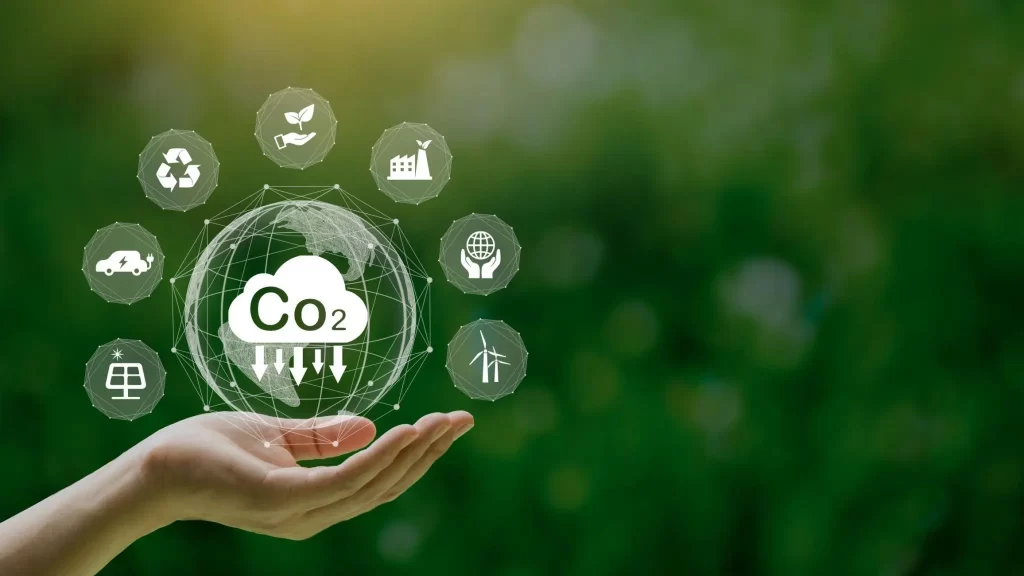Solar energy is considered a clean source of energy because it does not produce harmful emissions or pollution during the generation of electricity. It is considered one of the cleanest sources of electricity. However, it’s worth noting that the production, transportation, and disposal of solar panels can have an environmental impact, but it is generally considered to be minimal compared to other sources of energy such as fossil fuels.
When compared to other renewable sources of energy such as wind, hydro, and geothermal, solar energy also produces less waste and has less impact on wildlife. Additionally, solar energy can be used in remote and off-grid locations where it would be difficult to access other sources of energy.
In summary, while solar energy is not completely without environmental impact, it is considered one of the cleanest sources of energy available. It has the potential to significantly reduce greenhouse gas emissions and air pollution, making it a key technology in the transition to a clean energy future.

Is solar energy sustainable?
Solar energy is considered to be a sustainable source of energy. It is renewable, meaning that it can be produced indefinitely, as long as the sun continues to shine. Unlike fossil fuels, which are finite and will eventually run out, solar energy can continue to be produced for billions of years.
Solar energy is also considered to be relatively low-impact compared to other forms of energy production. Solar panels do not emit any greenhouse gases or pollutants during operation, which makes it a clean energy source. Additionally, the materials used to make solar panels are relatively common and can be easily obtained.
However, it’s worth noting that the production, transportation, and disposal of solar panels can have an environmental impact. For example, the manufacturing process for solar panels can consume energy and create waste, and the disposal of used solar panels can create environmental problems if not managed properly. In summary, solar energy is considered to be a sustainable source of energy because it is renewable and relatively low-impact. However, it is important to consider the entire lifecycle of solar panels, from production to disposal, to ensure that they are used and disposed of in an environmentally responsible manner.

Solar panels are leading the clean energy revolution
Solar panels are a key technology in the clean energy revolution. They convert sunlight into electricity, providing a clean, renewable source of energy that does not produce harmful emissions. The use of solar panels has been increasing rapidly in recent years, driven by advances in technology that have made them more efficient and cost-effective.
One of the main benefits of solar panels is that they do not produce any greenhouse gas emissions, which are the main cause of climate change. They also do not produce any air or water pollution, making them a clean source of energy. Additionally, solar energy is abundant and widely available, making it accessible to people all over the world.
Solar panels can be installed on a variety of structures, including homes, businesses, and utility-scale power plants, providing a range of benefits to different sectors of society. The cost of solar panels has been decreasing, making it more affordable for more people to install them. This, along with government incentives, has led to a significant increase in the number of solar panel installations worldwide. Overall, solar panels are a leading technology in the clean energy revolution. They offer a clean, renewable, and widely available source of energy that can help reduce greenhouse gas emissions and combat climate change.
Why solar energy is the best source of energy?
Solar energy is considered to be one of the best sources of energy for several reasons:
- Renewable: Solar energy is a renewable source of energy, meaning that it can be produced indefinitely as long as the sun continues to shine. Unlike fossil fuels, which are finite and will eventually run out, solar energy can continue to be produced for billions of years.
- Clean: Solar energy does not produce any harmful emissions or pollution during the generation of electricity, making it a clean source of energy.
- Widely available: Solar energy is widely available and can be harnessed in many parts of the world, making it accessible to a large number of people.
- Cost-effective: The cost of solar energy has been decreasing in recent years, making it more cost-effective.
- Low-impact: The environmental impact of solar energy is relatively low compared to other forms of energy production.
- Versatile: Solar energy can be used in a variety of applications, including electricity generation, heating, and powering remote or off-grid locations.
- Job creation: The solar energy industry creates jobs, both in the manufacturing and installation of solar panels.
- Energy independence: Solar energy can help countries to reduce their dependence on fossil fuels and other non-renewable energy sources.
Overall, solar energy is considered to be one of the best sources of energy due to its renewability, cleanliness, wide availability, cost-effectiveness, low impact, versatility, job creation and energy independence.

